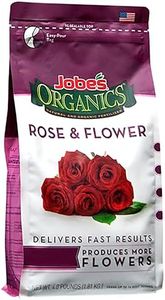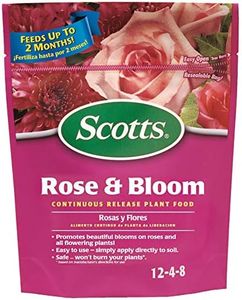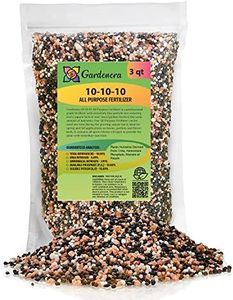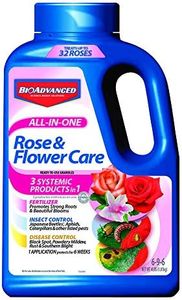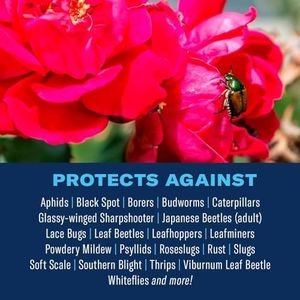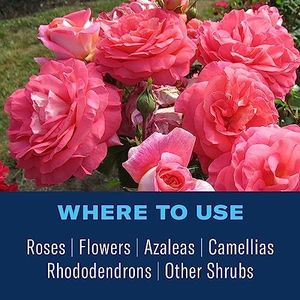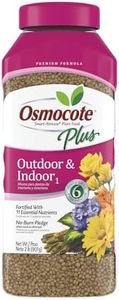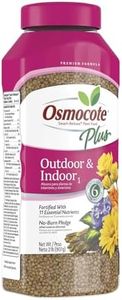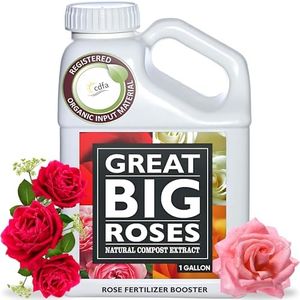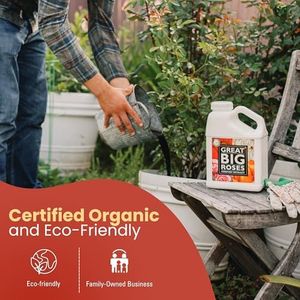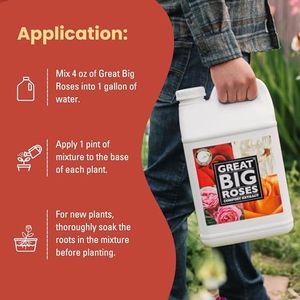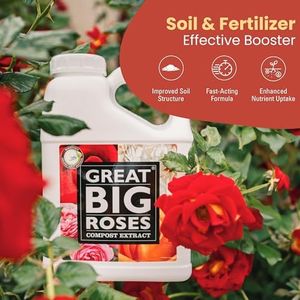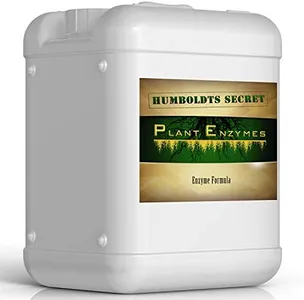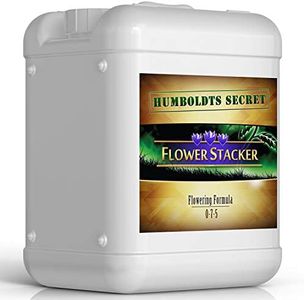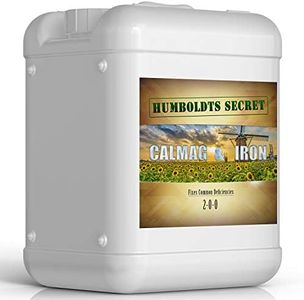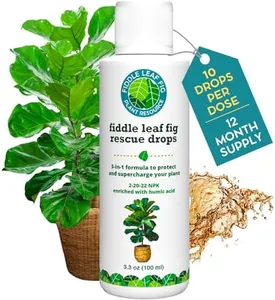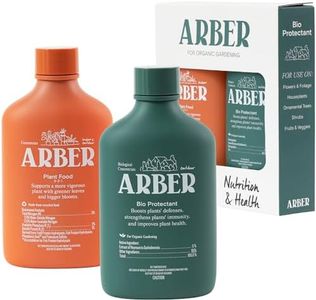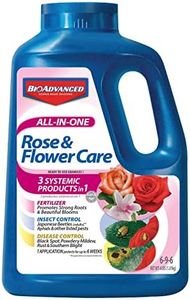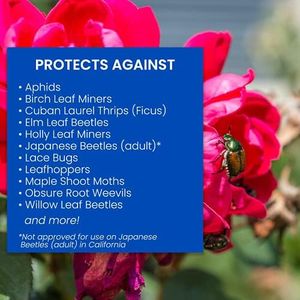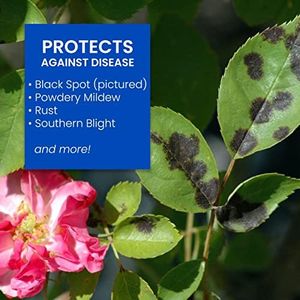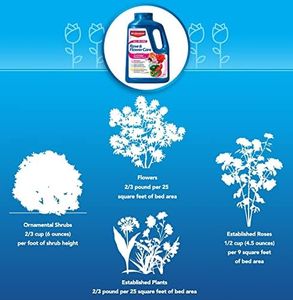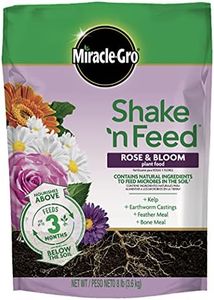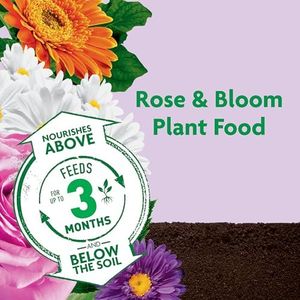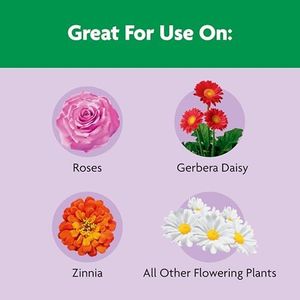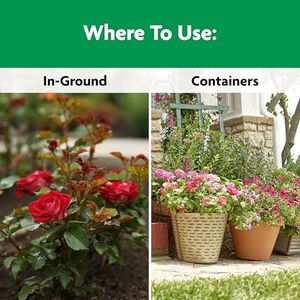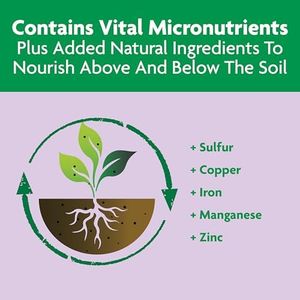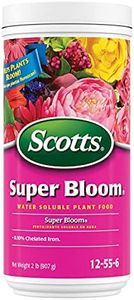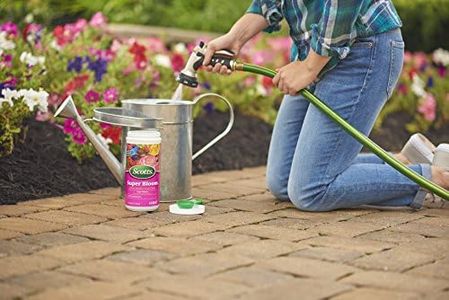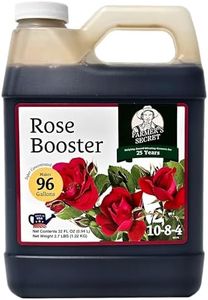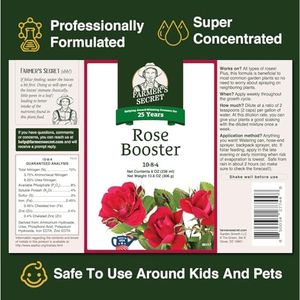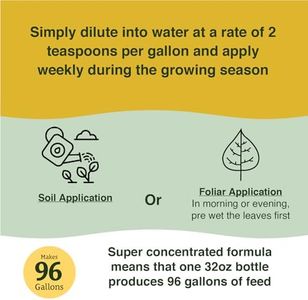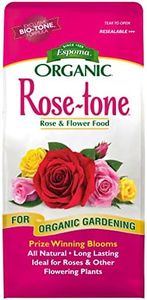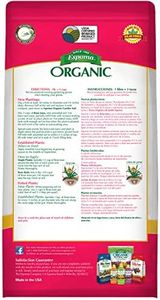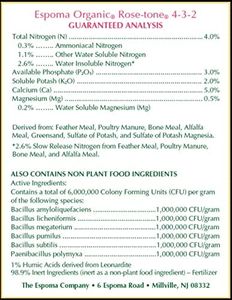10 Best Rose Fertilizers 2025 in the United States
Jobe's Organics Granular Rose Fertilizer, Organic Plant Fertilizer for Rose, Hydrangea, Hibiscus, Azalea, and Other Flowering Shrubs, 4 lbs Bag
Jobe's Organics Granular Rose Fertilizer is a well-regarded option for gardeners looking for an organic solution to nourish their roses and other flowering shrubs. With a 3-4-3 NPK ratio, it provides a balanced supply of nitrogen, phosphorus, and potassium, which are essential for vibrant blooms and healthy foliage. Being an organic fertilizer, it is free from synthetic chemicals, making it a safer choice for the environment and for gardeners who prefer natural products.
Most important from
7326 reviews
Scotts Rose & Bloom Continuous Release Plant Food, 3 lb
Scotts Rose & Bloom Continuous Release Plant Food is designed to provide steady feeding, promoting beautiful blooms on roses and other flowering plants like annuals and perennials. With an N-P-K ratio of 12-4-8, it supplies a balanced mix of nutrients essential for healthy plant growth.
Top 10 Best Rose Fertilizers 2025 in the United States
Jobe's Organics Granular Rose Fertilizer, Organic Plant Fertilizer for Rose, Hydrangea, Hibiscus, Azalea, and Other Flowering Shrubs, 4 lbs Bag
Jobe's Organics Granular Rose Fertilizer, Organic Plant Fertilizer for Rose, Hydrangea, Hibiscus, Azalea, and Other Flowering Shrubs, 4 lbs Bag
Scotts Rose & Bloom Continuous Release Plant Food, 3 lb
Scotts Rose & Bloom Continuous Release Plant Food, 3 lb
BioAdvanced All-In-One Rose and Flower Care I, Granules for Insects 4 lb
BioAdvanced All-In-One Rose and Flower Care I, Granules for Insects 4 lb
Scotts Super Bloom Water Soluble Plant Food, 2 lb - NPK 12-55-6 - Fertilizer for Outdoor Flowers, Fruiting Plants, Containers and Bed Areas - Feeds Plants Instantly
Scotts Super Bloom Water Soluble Plant Food, 2 lb - NPK 12-55-6 - Fertilizer for Outdoor Flowers, Fruiting Plants, Containers and Bed Areas - Feeds Plants Instantly
7.4 score
Espoma Organic Rose-Tone 4-3-2 Organic Fertilizer for All Types of Roses and Other Flowering Plants. Promotes Vigorous Green Growth and Abundant Blooms. 4 lb. Bag - Pack of 2
Espoma Organic Rose-Tone 4-3-2 Organic Fertilizer for All Types of Roses and Other Flowering Plants. Promotes Vigorous Green Growth and Abundant Blooms. 4 lb. Bag - Pack of 2
Our technology thoroughly searches through the online shopping world, reviewing hundreds of sites. We then process and analyze this information, updating in real-time to bring you the latest top-rated products. This way, you always get the best and most current options available.

